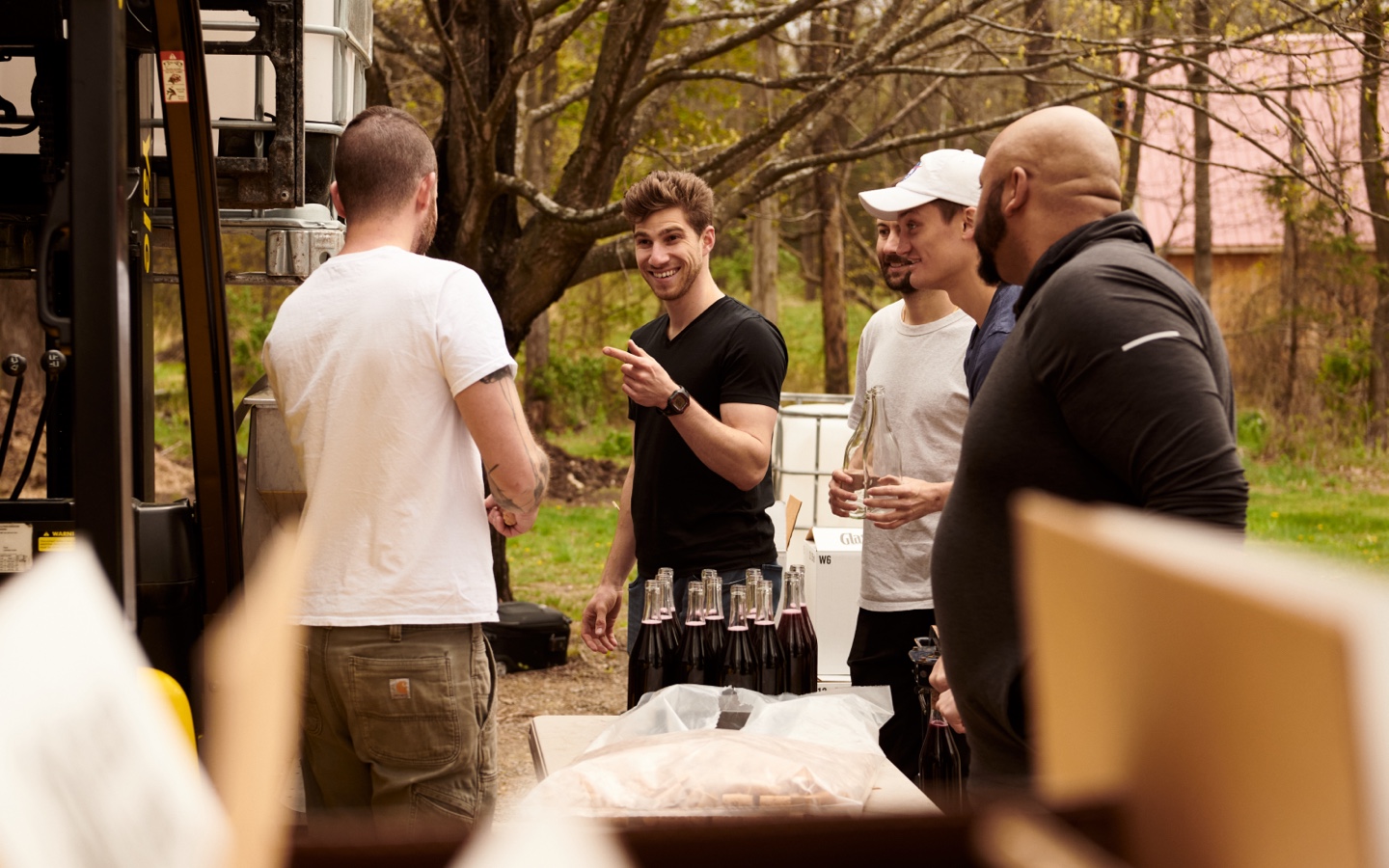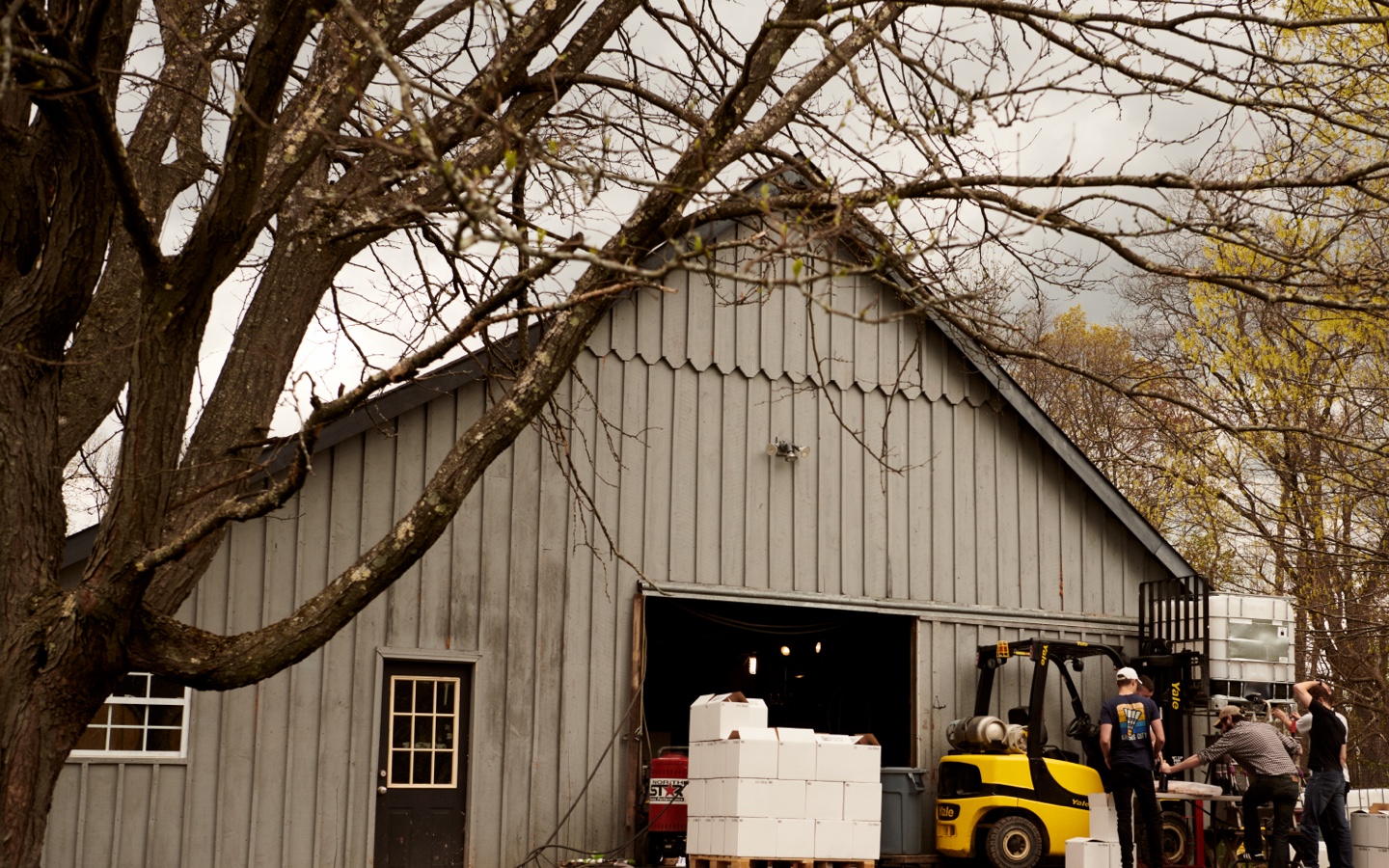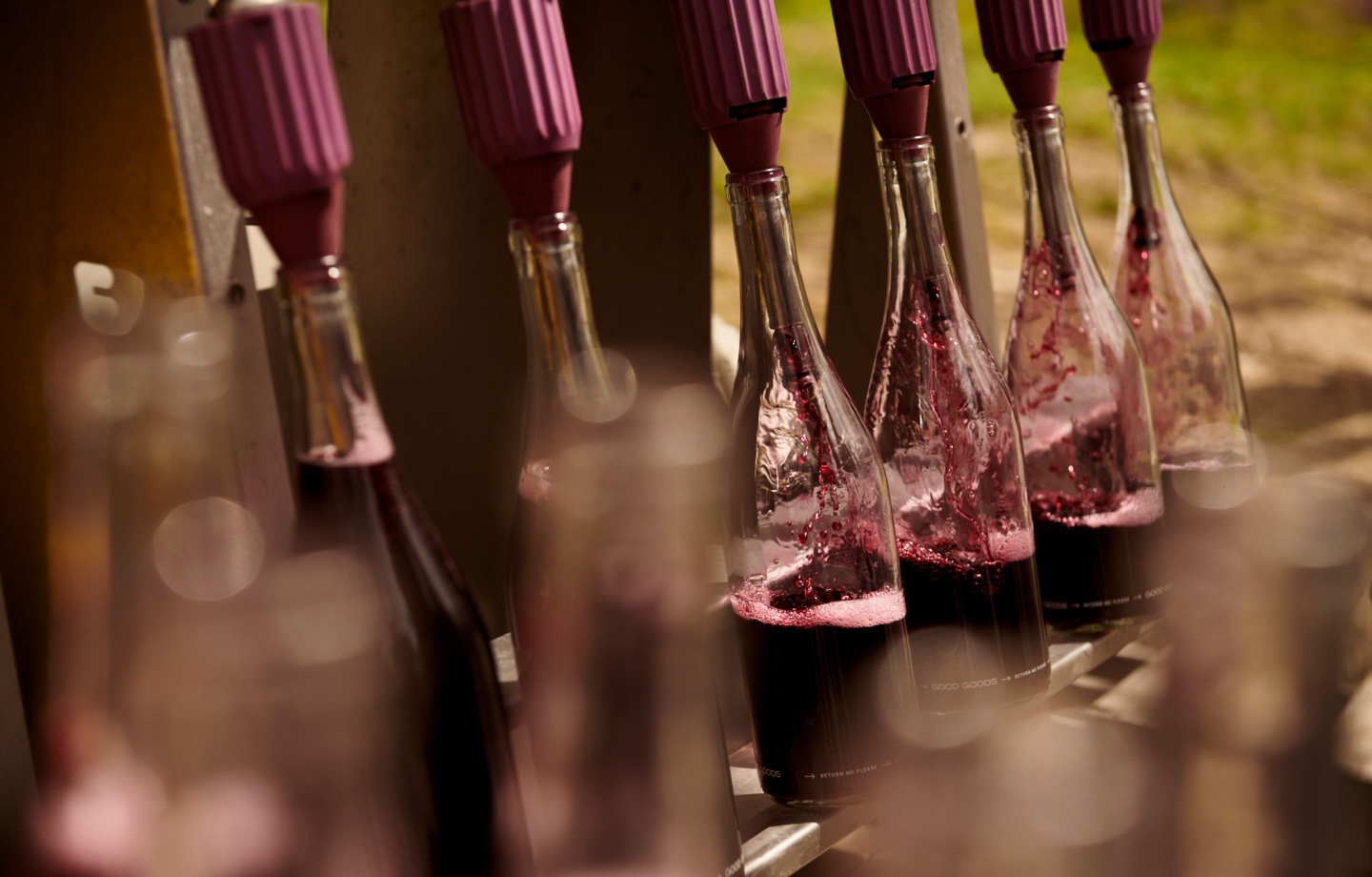If you want to curb waste and create a circular economy, you have to start somewhere. For NYC-based company Good Goods, reusable wine bottles presented the perfect opportunity.
We’ve all been there. After a few nights of wining and dining at home, we’re left with a small pile of glass bottles destined for the recycling bin. But, as many of us have learned in recent years, much of what we recycle still ends up in landfills, despite our best intentions. So what’s a sustainability minded wine lover to do?
In the case of entrepreneur Zach Lawless, you start a business in the middle of a pandemic. After the rise of Covid led to the closure of his New York City grab-and-go food venture Fresh Bowl, Lawless saw an opportunity to close the lifecycle loop for something much bigger: wine bottles. He launched Good Goods in August 2020 with the goal of making bottle reuse easy and rewarding.
“We became very ingrained in this idea of circular packaging and wanted to make it more of a mass-market product,” says Lawless. Unlike a lot of consumer food items, “wines are already in durable reusable packaging, so there would be no need to change the current supply chain.”
“Out of the 20 retailers we went out to, 17 agreed to participate. We realized pretty quickly that this narrative about retailers being reluctant to work with reusables is more of an issue with the process. It’s not a gatekeeper that people believe it is.”
At its core, what Good Goods is doing harkens back to a time when reuse was the norm. Once upon a time, the milkman delivered and picked up bottles from front porches. Of course, the wine business has always been an international industry, with little incentive for consumers to return bottles, so Lawless and his team started local. They approached a small number of New York City retailers to gauge interest and got a surprising result.
“Out of the 20 retailers we went out to, 17 agreed to participate. We realized pretty quickly that this narrative about retailers being reluctant to work with reusables is more of an issue with the process,” says Lawless. “It’s not a gatekeeper that people believe it is.”

Read more: 7 Sustainability Trends You’ll See in 2022
Good Goods ultimately launched with 20 retailers and supported 4,000 customers returning 20,000 bottles in the first three months. Lawless credits this success to the simplicity of the process for everyone involved: the retailer, the customer, and the producer. “We make it so easy to participate in the circular economy that people who aren’t super driven to do so can do it easily.”
To participate, the customer buys wine from a Good Goods partner, returns the bottle, and receives a credit via a QR code for their next purchase. The retailer notifies Good Goods when they’ve reached a certain threshold of returns and schedules a pickup. From there, bottles are cleaned and sent to winemakers. They’ve now onboarded 60-plus producers from around the world, including those in historic winemaking regions like Champagne, far-flung locales such as Waihopai Valley, New Zealand, and domestically in Sonoma.
“As a consumer, using your money to make a vote is the number one thing you can do. When you buy a product that’s sustainably grown or sustainably packaged, you’re voting with your dollars in a way that can drive change on a systemic level.”
Good Goods is expanding its reusable wine bottles business, branching into California, Washington, and Oregon over the course of 2022. It’ll be interesting, says Lawless, to test this out on the West Coast.
“How do you bring more people to the inside and feel like they’re a part of this? For so long it was recycling that made people feel good,” says Lawless. But now, “as a consumer, using your money to make a vote is the number one thing you can do. When you buy a product that’s sustainably grown or sustainably packaged, you’re voting with your dollars in a way that can drive change on a systemic level.”
Even if a reusable wine bottles program like Good Goods isn’t available near you yet, there are still ways to curb everyday waste. Here are some simple, yet impactful ways to participate in the reuse economy.

Read more: How to Limit Plastic Waste With Your Morning Coffee
Return Bottles When You Can
If you live near a wine producer, call to see if they accept bottle returns. The same applies to growlers — some breweries will take them back for reuse.
Look for Sustainable Packaging
Many companies — including global brands such as Coca-Cola and L’Oreal — are swapping out single-use plastic for more sustainable options that you can more easily recycle, upcycle, or reuse.
Freecycle Furniture
Not only is furniture expensive, but these big pieces often come with a large carbon footprint. Keep an eye around your neighborhood for perfectly good furniture people are leaving out on the curb. (If you live in a college town, move-out weekend is a gold mine.)
Join a Local Buy Nothing Group
Before you click the buy button on a new product, check in with your local Buy Nothing Group — it’s possible there’s a pre-owned version of what you’re looking for that someone is ready to part with.
Read more: The Packaging Startup Helping Big Brands Tackle Waste
Have feedback on your story? Email us at [email protected] to let us know what you think!

Shop Pillows
The Essential Organic Pillow Collection
Gentle, breathable, non-toxic support.





